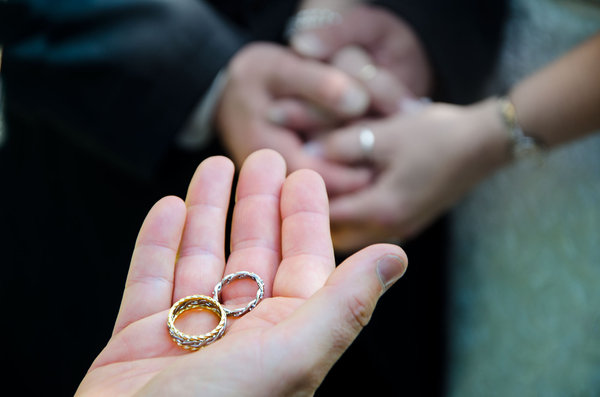A cliche that surfaces everywhere from movies and TV shows to women’s magazines is the question “why are men so afraid of commitment?”. This type of attitude is unhelpful in trying to understand why an increasing number of men are deciding not to get married. The reality is that marriage rates around the western world have plummeted, with more men and women in America identifying as “never married” than at any other time in history.
In Ireland, while marriage rates are relatively steady even compared to our more Catholic past, people are waiting nearly ten years longer to marry than they did four decades ago. It is also more common to start families outside of marriage. Rather than being a necessary prerequisite to having children, marriage is now a life choice to exercise rather than an obligation to be straitened by.
A growing number of men just aren’t interested in getting married or even having long-term relationships. In Japan, they are known as “herbivore men” , because they have no interest in the traditional, “carnivorous” pursuits of their salarymen fathers.
Their American and Western European counterparts have been described in less favourable terms, including “manchildren” and “failures to launch” . Dr Helen Parr’s 2013 book, Men on Strike: Why Men are Boycotting Marriage and the American Dream, frames the men walking away from marriage as “strikers” making a simple cost-benefit analysis of commitment, before deciding that it’s simply too risky under the current system.
Setting aside the layers of fluff and romanticism that adorn it, marriage is fundamentally a legal agreement between two parties. In other words, it is a contract. Unlike a private contract between two parties, which can be tailored to the specific needs of the individuals involved, marriage is a one-size-fits-all deal. This wouldn’t necessarily be an issue if the terms of the deal were at least reasonable. Unfortunately, they largely aren’t.
Men who commit to marriage are often committing to a life of penury and isolation from their children if things don’t work out in the long run
Our legal approach to men’s role in marriage can be aptly summarised by the “Hello Divorce, Bye Bye Daddy” slogan, which featured on posters and billboards nationwide during the acrimonious divorce referendum of 1995. This slogan should be remembered as being one of the least prophetic pieces of scaremongering ever to adorn a political campaign. In line with international statistics, women initiate divorce in more than 70 per cent of cases where dependent children are involved.
Aware that any legislation seen to enable men to desert their wives was unacceptable to the Irish public, the government of the time deliberately worded the 1996 Divorce Act to preclude “clean break” divorces with any financial finality. This fact, combined with the prevalence of traditionalist attitudes towards gender roles in court decisions, means that men who commit to marriage are often committing to a life of penury and isolation from their children if things don’t work out in the long run.
The work of Dr Roisà n O’Shea, who spent years studying hundreds of cases first hand in family courts around the country, reveals just how inequitable the family court system is for men. The average divorce case will result in a man losing the right to reside with his children, whilst still being mandated to discharge mortgages and pay maintenance. Due care will not be given to how he is supposed to support himself, resulting in many men earning below the weekly subsistence level calculated by the state.
Setting aside the layers of fluff and romanticism that adorn it, marriage is fundamentally a legal agreement between two parties
The deprivation of children of their fathers and paternal relatives should be a seen as more serious issue than it is at present. The recent Fathers4Justice protest at the Rose of Tralee illustrates the lengths that father’s rights activists must go to in order to draw attention to one of the injustices of our time.
Given that I have outlined the perspectives of thousands of other men, it is only fair that I lay my own cards on the table: I have no intention of ever getting married, despite being in a happy, long-term relationship. My personal objection to marriage isn’t just motivated by my sense of self-preservation. I have an inherent dislike of formalising what is supposed to be a singular bond with another person on any terms other than my own.
I also believe that supporting an institution which has been shown to be so inequitable to other men is fundamentally unprincipled.
Peaceful non-participation is a sincere form of protest. Movements like the “strikers” and the “herbivores” have already garnered media attention simply because they feature young men who refuse to conform to what society expects of them.
A mass boycott of marriage by young Irish men might just be enough for people to actually do something to change the system. I’m not holding out hope, however. Such changes would require serious commitment.







